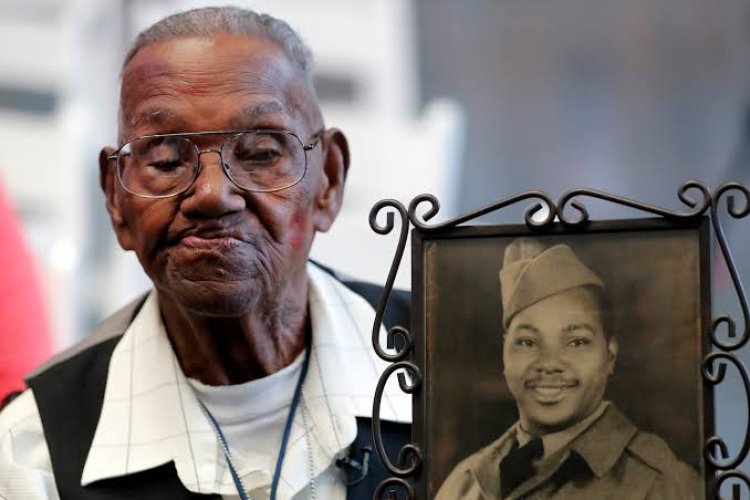Oldest US war veteran, Lawrence Brooks dies at 112
Brooks was the oldest of the approximately 240,000 US veterans who fought in World War II who remain alive.

The United States’ oldest living veteran, Lawrence Brooks, died Wednesday, January 5, 2021, at the age of 112, the World War II Museum in New Orleans announced.
The National WWII Museum “will forever cherish the memories we shared with Lawrence Brooks,” its president Stephen Watson said in a statement.
“He was a beloved friend, a man of great faith and had a gentle spirit that inspired those around him.”
Brooks was the oldest of the approximately 240,000 US veterans who fought in World War II who remain alive.
Born on September 12, 1909, in a small Louisiana town in the midst of segregation, Brooks was one of 15 children in an African-American family. He was drafted into the army in 1940, where he joined the 91st Engineer Battalion, a majority-Black unit.
He was stationed in Australia, New Guinea and the Philippines. During his deployments, he served as a cook for the battalion’s white officers.
Although far from the front lines, he still had two near-death experiences: once when the plane in which he was transporting supplies ran out of fuel over the ocean, and another time when a Japanese sniper shot a US soldier just yards from where Brooks stood.
Demobilized in 1945, Brooks did not benefit from the GI Bill, which allows veterans to study at university free of charge, because Black veterans were excluded from the policy. Instead, he became a public works laborer.
He later recounted his wartime memories to the New Orleans museum, where he became a fixture. Every year, he celebrated his birthday there, complete with military honors and jazz bands.
The last two years, due to the pandemic, processions had been organized in front of his house.
In his videotaped testimonies, Brooks said he was surprised by the lack of racial segregation in Australia when it was still present in the US army. Black soldiers were not allowed to share a tent or eat at the same table as their white comrades-in-arms.
“I was treated so much better in Australia than I was by my own white people,” Brooks said. “I wondered about that.”





































